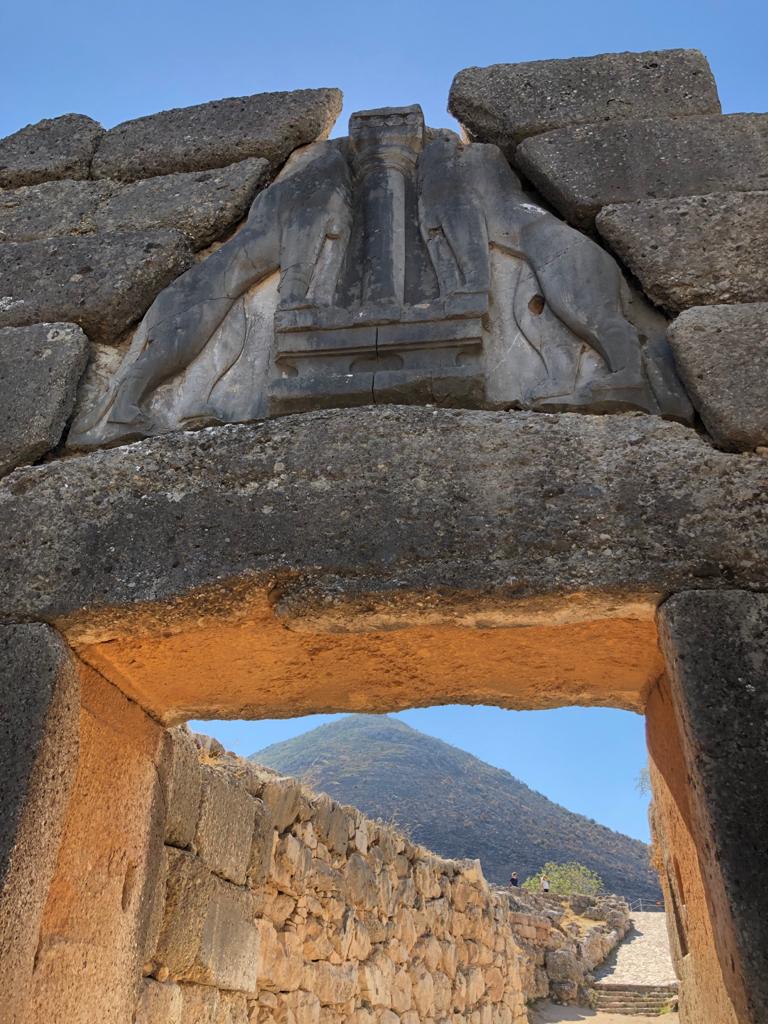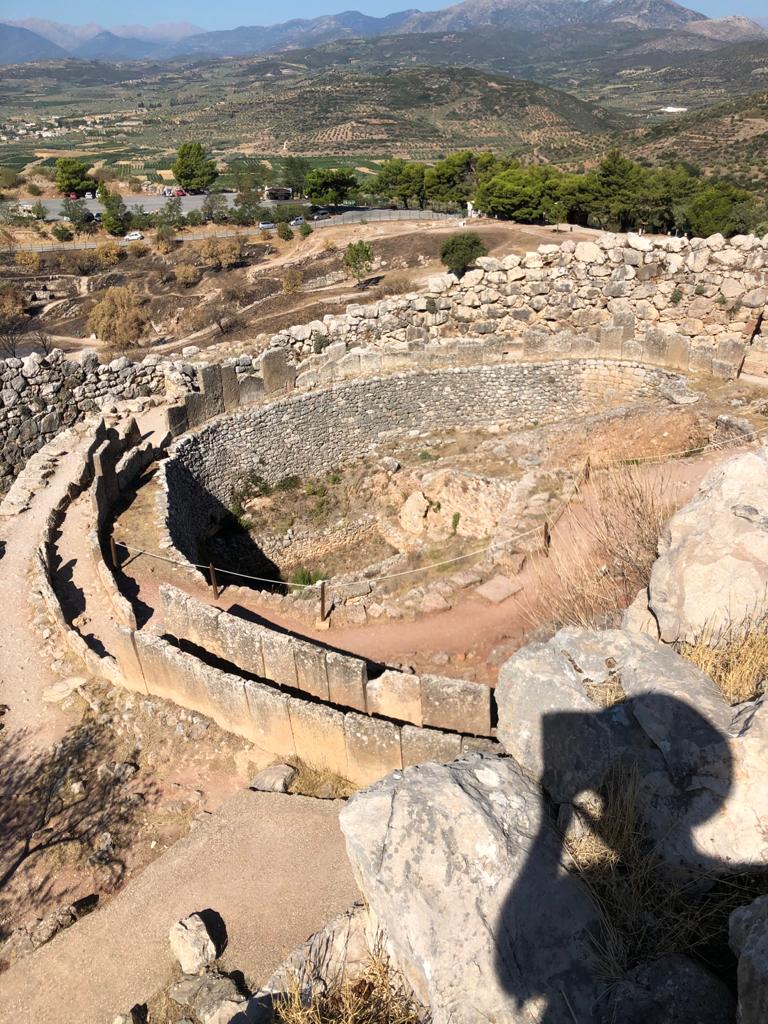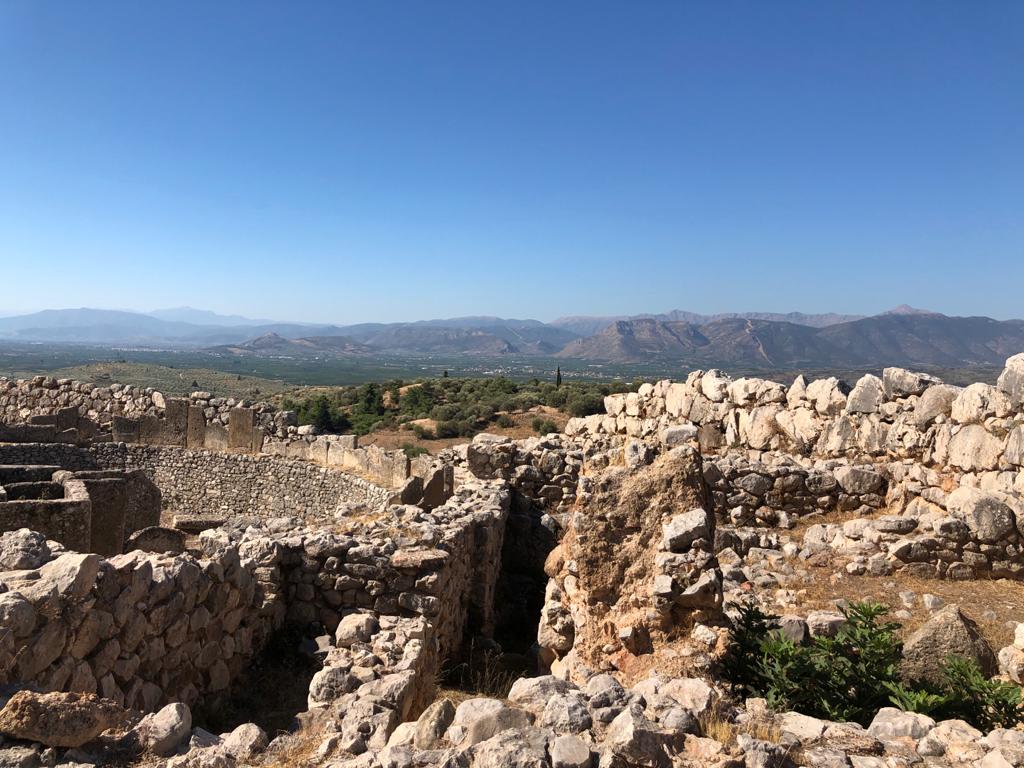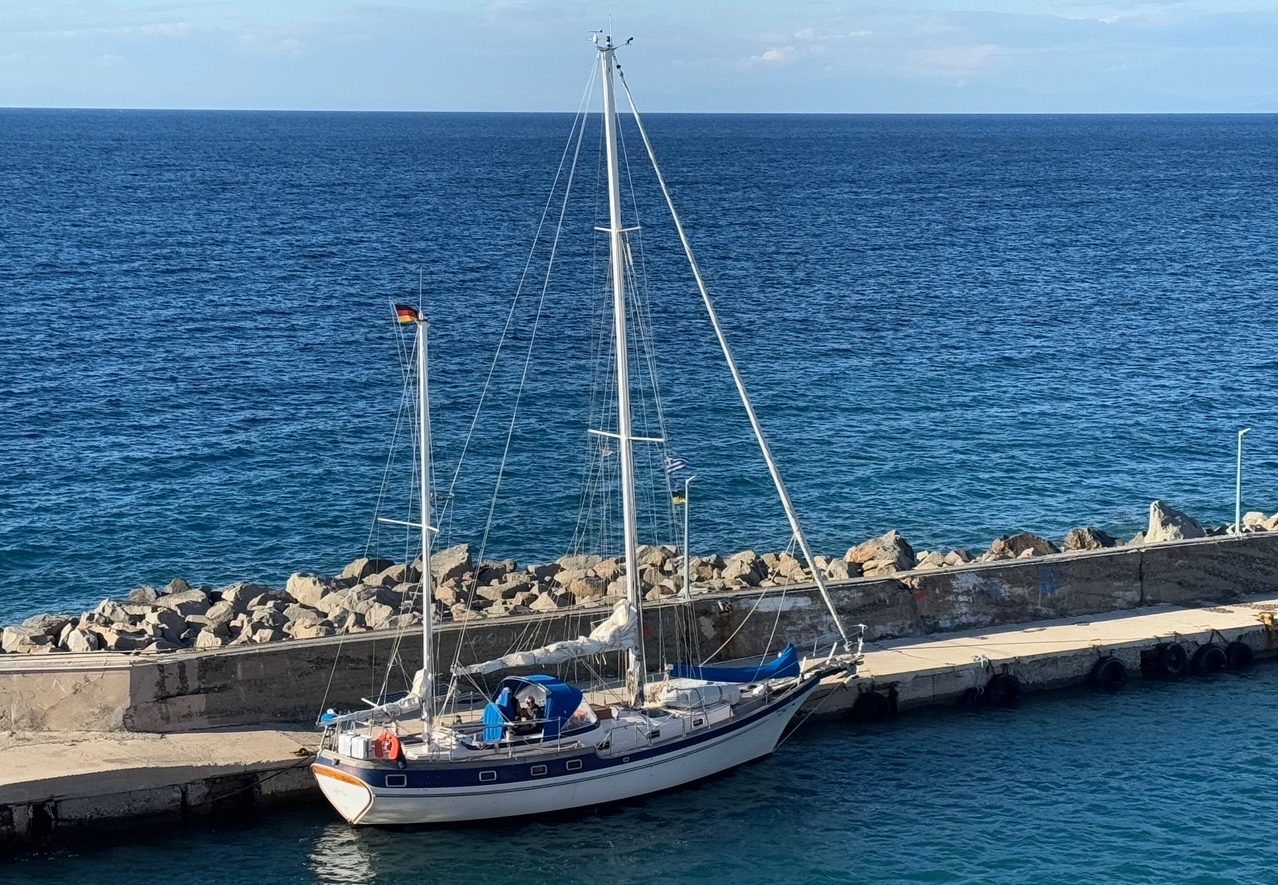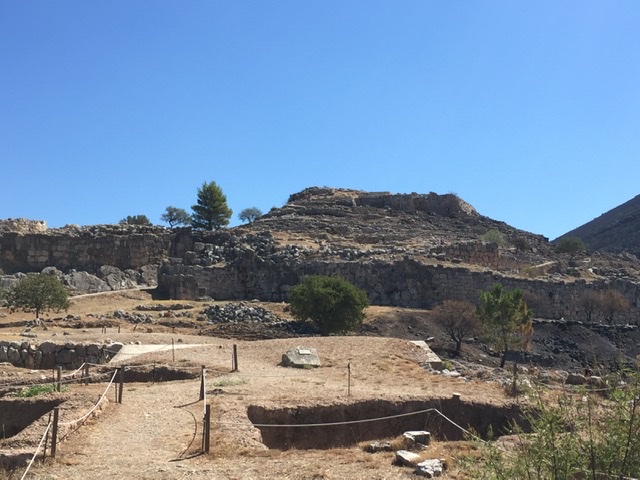
One remembers the history lessons and the pictures in the history books: The gigantic Lion's Gate, of which we still do not know how the huge stone blocks were piled up to the wall and the gate and in general to the citadel. According to the legend it was Perseus, son of Zeus and Danae, who founded Mycenae and commissioned the Cyclops to build the wall.
We are in Argolis, no longer in Arcadia, but the landscape is similar. Between two hills overlooking the sea, Mycenae is about 20km northeast of Nafplion. The huge citadel looks from a distance as if it had grown out of the hill. You walk through the huge walls through the lion's gate to a circular burial chamber, diameter about 15 meters, 5 meters deep. Then through a quarter where the craftsmen and artists lived and worked, an area of cult practice, and up above is the citadel. Heinrich Schliemann, who you meet everywhere here, and who "excavated" Mycenae, dated Mycenae to the classical Greek period, the golden mask, also in every history book, was for him the mask of Agamemnon.
This is one of the reasons why we know Mycenae as one of the most important origins of the Greek culture and connect it with the confederations of cities, with Athens and Sparta, with Classical Greece, eighth to third century BC, also with the classical epics and tragedies.
Meanwhile it has been found that Mycenae is much older, until 2000 of the pre-Christian period, first beginnings around 3000 at the beginning of the Bronze Age. Corresponding cult objects, but also articles of daily use and weapons are exhibited in the Archaeological Museum, which is located nearby - naturally also statues and findings from the Greek period.
Thus Mycenae stands for centuries and millennia of development from the settlement, agriculture and handicraft up to the Greek/hellenic high culture and thus for the change, with which following settlers or also occupiers, who took over and integrated positive elements of the culture found for them in each case. The museum uses a very appropriate term for this: "cultural fermentation", and today we are of course also a part of it.
